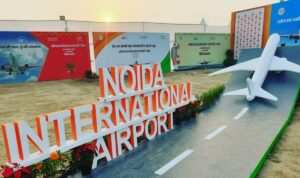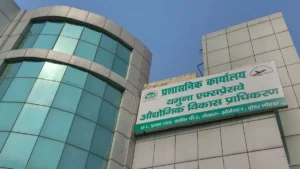In a significant move towards sustainable urban mobility, Noida is gearing up to launch an extensive electric bus service. This initiative, part of the Prime Minister’s E-Bus Sewa Scheme, aims to revolutionize public transportation in the region. Let’s dive into the details of this ambitious project and what it means for residents and visitors of Noida, Greater Noida, and the Yamuna Expressway area.
The Big Picture
The Noida, Greater Noida, and Yamuna Expressway Industrial Development Authorities (YEIDA) have jointly issued an Expression of Interest (EOI) to kickstart an electric bus service across these three urban areas. Here’s what you need to know:
- Project Value: ₹675 crore
- Number of Buses: 500 electric buses
- Coverage: 27 routes across Noida, Greater Noida, and Yamuna Expressway region
- Timeline: Operator expected to be finalized within two months
Breaking Down the Numbers
The distribution of buses and routes is as follows:
| Area | Number of Buses | Number of Routes |
|---|---|---|
| Noida | 200 | 13 |
| Greater Noida | 200 | 9 |
| Yamuna Expressway | 100 | 5 |
Additionally, there will be one route each connecting Noida to Delhi, Ghaziabad, and Greater Noida.
Why Noida Needs This Service
The current public transport system in Noida is facing several challenges:
- Limited Metro coverage (only 29.7 kilometers between Noida and Greater Noida)
- Heavy reliance on electric rickshaws and e-bikes for last-mile connectivity
- Lack of a comprehensive city bus service
- Unsustainable urban transport system
The e-bus service aims to bridge these gaps by connecting key areas such as government offices, Metro stations, markets, shopping malls, and residential zones.
Features of the E-Bus Service
- Operational Period: The selected agency will manage the service for 12 years
- Annual Coverage: Each bus is expected to cover 72,000 kilometers per year
- Charging Infrastructure: The operator will handle planning, designing, installation, and maintenance of charging stations
- Contract Type: Gross cost contract basis
The Selection Process
The authorities are taking a meticulous approach to choose the right operator:
- Agencies will be shortlisted based on technical qualifications
- Only those meeting the criteria will have their financial bids considered
- The EOI was prepared by Manoj Kumar Panda, senior consultant at the UP Directorate of Urban Transport
Looking Ahead: The Comprehensive Mobility Plan
The project doesn’t stop at just introducing e-buses. There’s a broader vision in place:
- A Special Purpose Vehicle (SPV) has been formed by the three industrial bodies
- Collaborations with infrastructure developers, technology providers, and independent experts are underway
- A Comprehensive Mobility Plan (CMP) for the Noida Urban Agglomeration (NUA) is being developed
- The CMP will evaluate current transport infrastructure and address shortcomings
Impact on Noida International Airport Connectivity
While this e-bus service is primarily for urban connectivity, there are separate plans to connect the upcoming Noida International Airport:
- YEIDA is planning a dedicated bus service to connect the airport with Delhi, Ghaziabad, Noida, and Greater Noida
- Initially, 100 buses are proposed, with plans to increase to 250 based on demand
- This airport-specific service is expected to be operational by April 2025, coinciding with the airport’s opening
What This Means for Residents
The introduction of this e-bus service promises several benefits for the people of Noida and surrounding areas:
- Improved Connectivity: Better access to key city areas and neighboring regions
- Reduced Traffic Congestion: More people using public transport means fewer private vehicles on the road
- Environmental Benefits: Electric buses will help reduce air pollution
- Economic Advantages: Potentially lower transportation costs for daily commuters
- Enhanced Urban Living: A step towards making Noida a more livable and sustainable city
Challenges and Considerations
While the project looks promising, there are potential hurdles to consider:
- Infrastructure Development: Ensuring adequate charging stations and maintenance facilities
- Integration with Existing Systems: Seamless connection with Metro and other transport modes
- Public Adoption: Encouraging residents to shift from private vehicles to public transport
- Operational Efficiency: Maintaining timely and reliable service across all routes
The Road Ahead
As Noida embarks on this green journey, the success of the e-bus service will largely depend on efficient implementation and public participation. With the right approach, this initiative could serve as a model for other Indian cities looking to upgrade their public transport systems.
For more information and updates on the Noida e-bus service, visit the official Noida Authority website.






